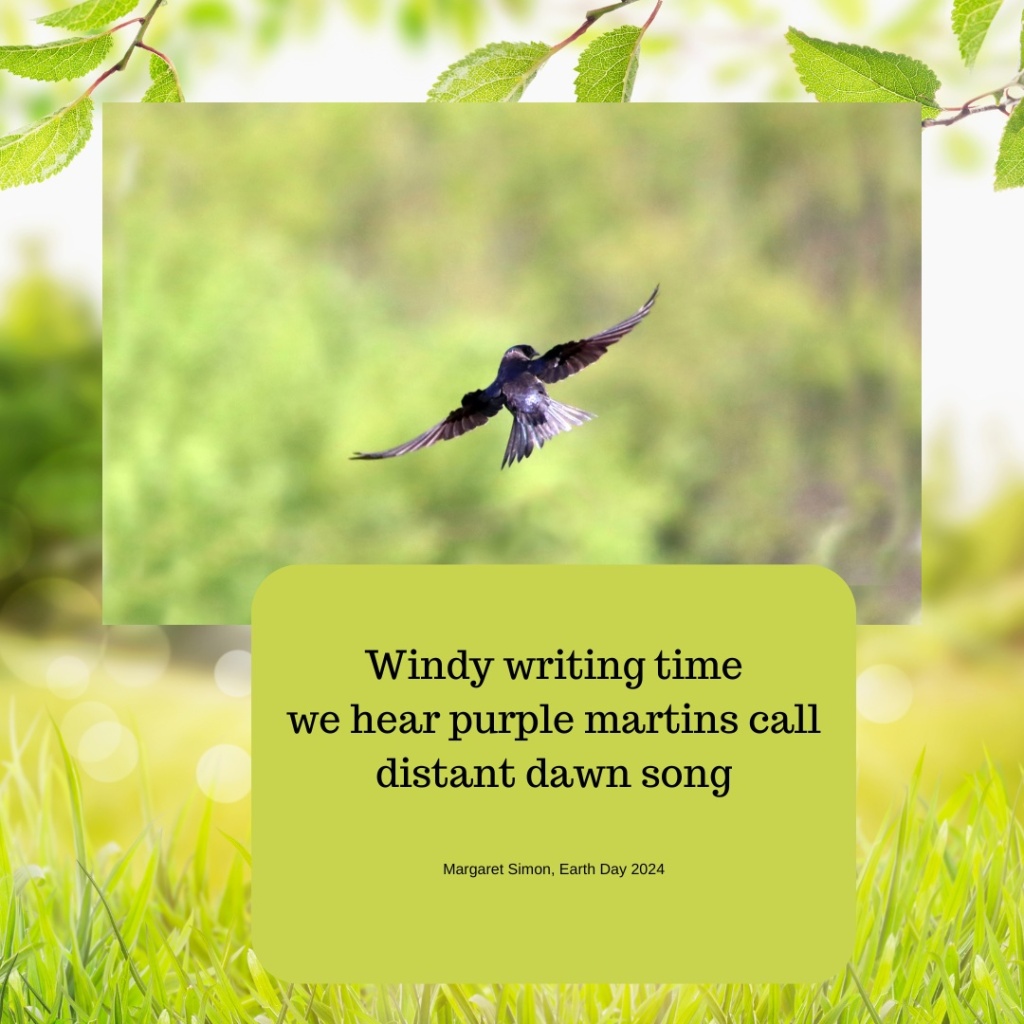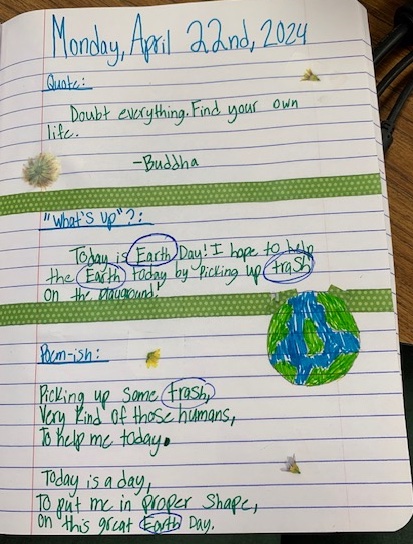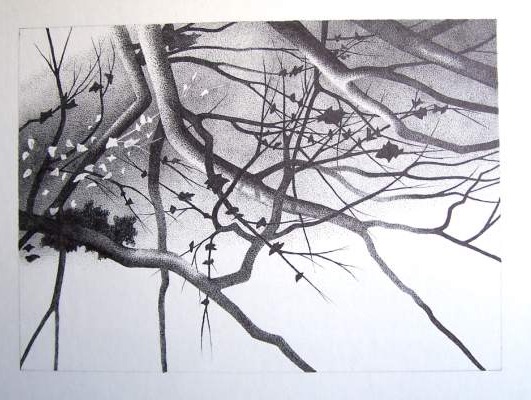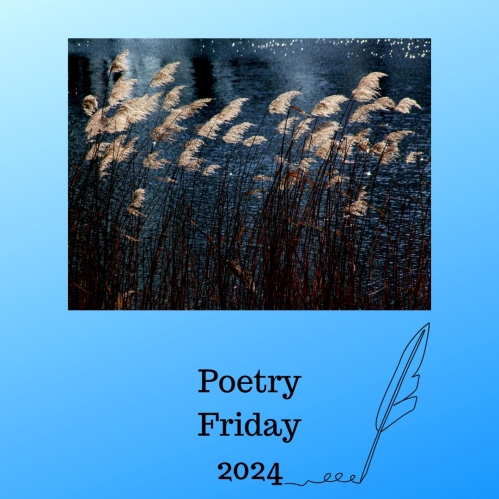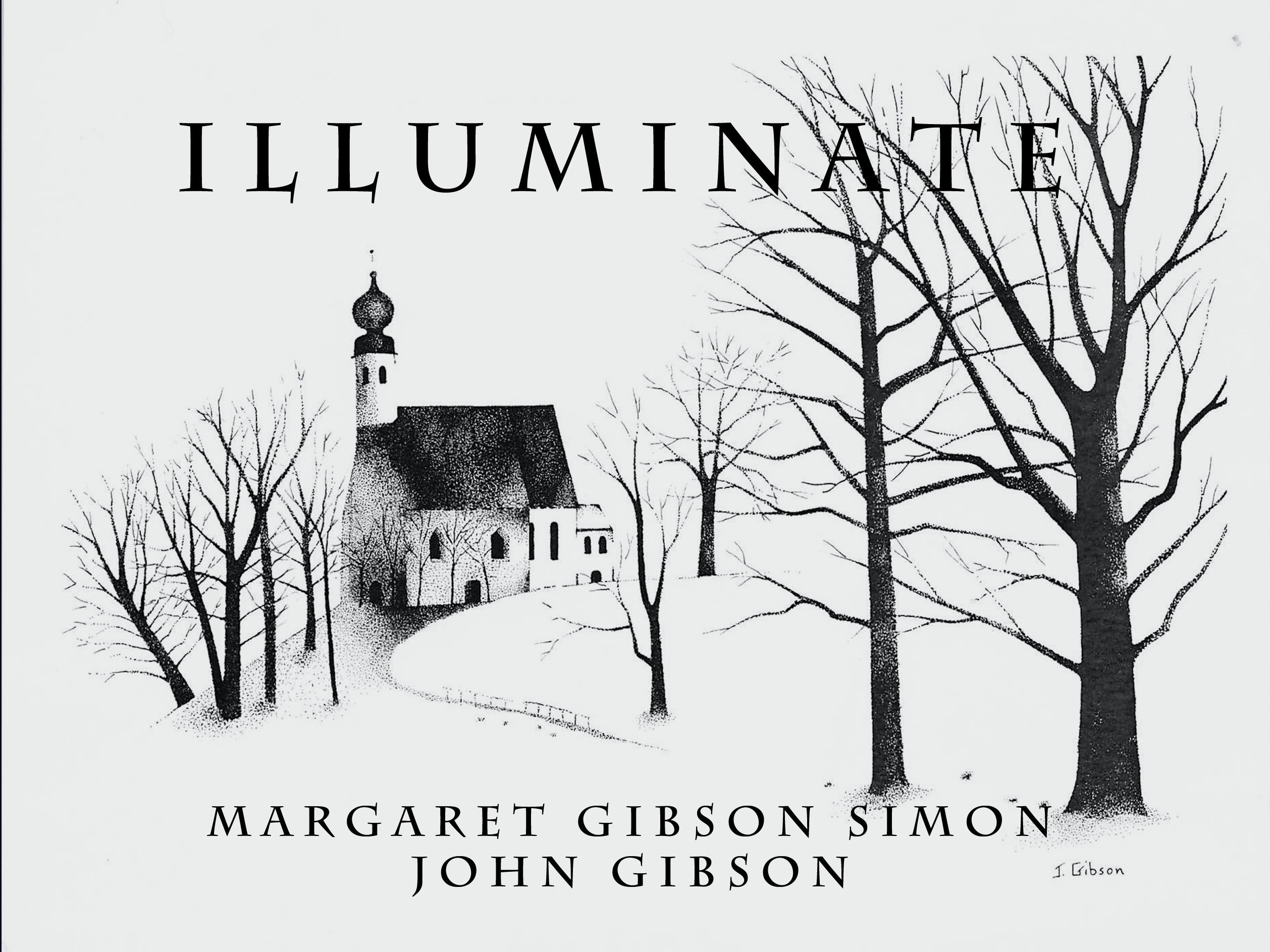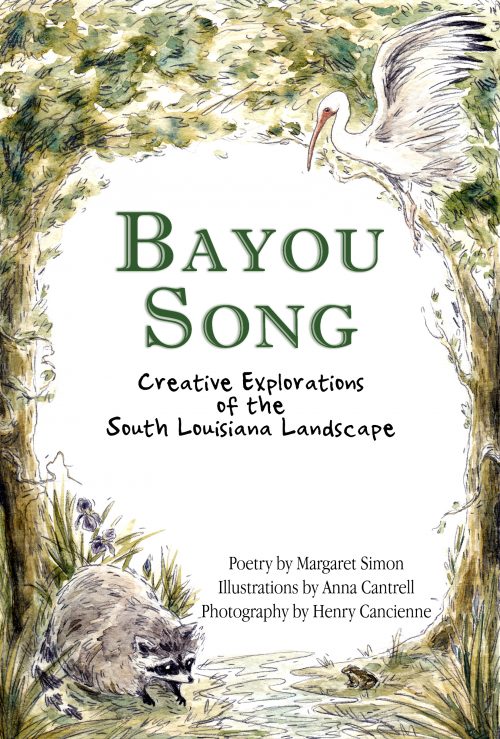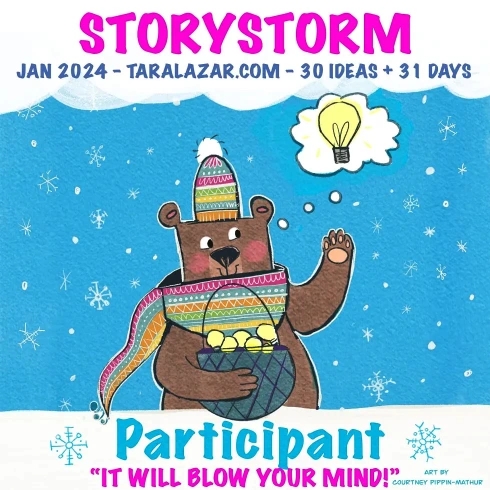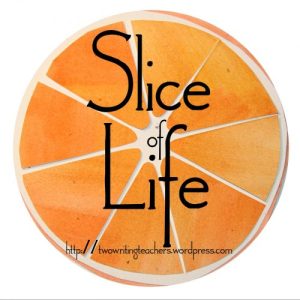
Monday was Earth Day and the weather could not have been more perfect. A cool front came through, so our temps were in the 60’s. I took each group of students outside for writing time. I opened the Merlin app and we talked about the birds’ songs we heard. It was a good day for listening, teaching, and writing. State testing starts Wednesday, so I was happy for the opportunity to sit outside and forget our worries.
Earth Day is also my father’s death day. He loved double numbers; his birthday was 11/11/33. He passed away on 4/22/22. Ethical ELA’s prompt gave me the space I needed to write about him and his love of trees.
Earth Day Dedication
My father’s compass pointed
to the trees, how the branches
bent and blocked light
shadows dotting landscape.Once he told me trees grounded
him in the present, reliable–
long standing
safety for Mother Earth’s children.Yesterday I heard the “kow-kow-kow”
of a yellow-billed cuckoo
stopping in our tree from its journey
across the Gulf.The journey of life,
as the cuckoo calls,
is hard and easy. Some days
you find rest, take a breath,
sigh for Mother Earth
and sing loud.
(Margaret Simon, draft)
